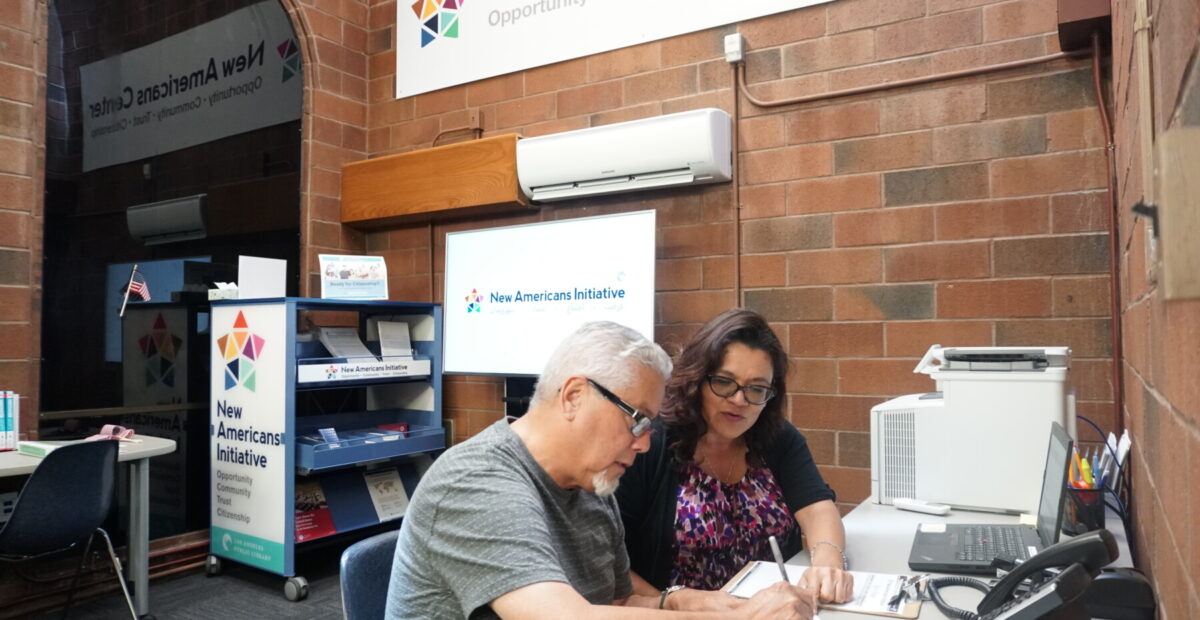
Workshop
When libraries become a refuge: where culture becomes an opportunity

Besides offering books, the Los Angeles Public Libraries (LAPL) in the US are places where lives are rebuilt. With accessible programmes, social services and emotional support, they offer the most vulnerable a chance to rebuild their futures.
In Los Angeles County, public libraries are not just a refuge from the chaos of the city or bad weather. They are a place of salvation, an anchor of hope for those who have lost everything. Every day, men and women facing housing difficulties find shelter in the city’s libraries: a corner of peace, but also access to essential services and an opportunity to rebuild. The Los Angeles Public Libraries (LAPL) are the perfect example of how a cultural institution can become a point of reference for the most vulnerable and play a key role in the welfare system.
The Source: A direct access to hope
Among the most significant programs of the Los Angeles Public Libraries (LAPL) is The Source, a monthly event held at the Central Library. It is not just about offering a flyer or a phone number but providing direct and tangible answers: a true “resource fair,” where local agencies, non-profit organizations, and city departments collaborate to offer immediate and concrete assistance to those in need. Services range from access to housing to food assistance, legal support, and help with navigating government agencies.
The initiative is designed to simplify the bureaucratic processes that often discourage those seeking help. Each participant can connect with experts who facilitate access to social and health services, providing guidance that would otherwise be lacking. It’s a way to bring back lives together, starting from basic needs like housing and food extending to complex issues such as mental health and legal support.
An Invisible but Essential Support Network
In addition to The Source, LA Public Libraries provide daily silent but effective support. With temporary accounts for internet access, showers, digital literacy courses, and job search tutoring, libraries become places where dignity is restored one step at a time. Many locations also provide technological devices such as Wi-Fi hotspots and laptops, essential for those needing to communicate with social services or simply navigate online for opportunities. There are no barriers to entry: here, no one asks for documents, and no one is turned away.
More than a Library, a Community Center
The libraries of Los Angeles are a refuge not only physically but emotionally as well. On certain days, mental health specialists are present in the LAPL halls, offering free and confidential psychological support. The housing crisis is a complex issue often accompanied by trauma and personal difficulties that require listening and care. Thus, among the shelves of books and quiet rooms, psychologists and social workers welcome those seeking not only shelter but answers too.
But libraries do not just assist: they educate, integrate, and empower. English language programs, literacy classes, and support for younger students are just some of the services offered. All of this is done with a non-judgmental approach, open to anyone who walks through the door, including those without documents or American citizenship.
A Model for the Future
What happens in the Los Angeles Public Libraries is an example of how a cultural institution can reinvent itself to meet the real needs of its community. In a world marked by inequalities, places like these become beacons of hope, where culture is not a luxury for the few, but a concrete tool for rebuilding lives. Furthermore, when weather alerts are issued, the Public Libraries also provide protection from increasingly extreme climate conditions in these areas, with ever more unpredictable and torrential rains.
The LAPL, with its programs and its resilient and proactive vision, demonstrates that culture is not an abstract good: it is solidarity, it is inclusion, it is fraternity.
In a historical moment when these values seem to fade, these libraries stand out as one of the few places that preserve and practice these values, reinventing themselves to find a place in the future of postmodern society. And this, perhaps, is the most valuable lesson we can learn.



